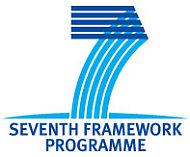
  |
Quantum Information Processing and Communication (QIPC) hold the promise of numerous breakthroughs in information technologies by using quantum phenomena such as coherence and entanglement. Given the extreme sensitivity of quantum protocols to noise, it is crucial to study the impact of its effects on QIPC to make technological applications a reality. Any form of QIPC may be represented as a quantum channel, i.e. a map transforming an input state into an output state. To date, attention has been paid to quantum channels that are memoryless, with the noise acting independently on each use of the channel. The goal of the project is to develop a general framework for understanding and managing of CORrelated Noise ERrors. Both spatial correlations, for example between different registers of a quantum computer, and temporal correlations between different stages of a process will be considered. The project reaches beyond current restricted models that involve statistically independent errors and often are inapplicable to real physical systems. The goals will be accomplished through a synergy of complementary expertise possessed by the member research groups, enabling the consortium to cover the entire range of relevant issues. This includes: general channel properties (ultimate bounds on capacities, quantification of correlation effects and identification of important classes of channels), encoding and decoding schemes (optimization of achievable information transmission rates, all-inclusive analysis of required resources, universal coding), quantum estimation of correlated noise (efficiency of estimation procedures, extraction of crucial parameters), dynamics in environments with memory (simulation techniques, effective channel models, probing environment properties).
|
